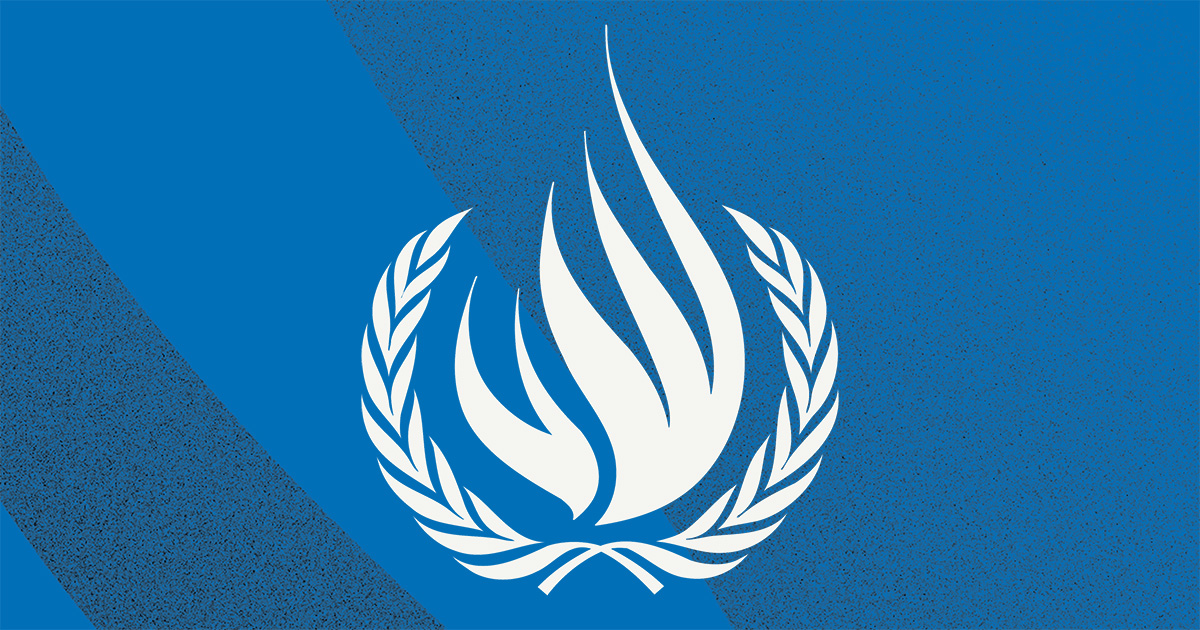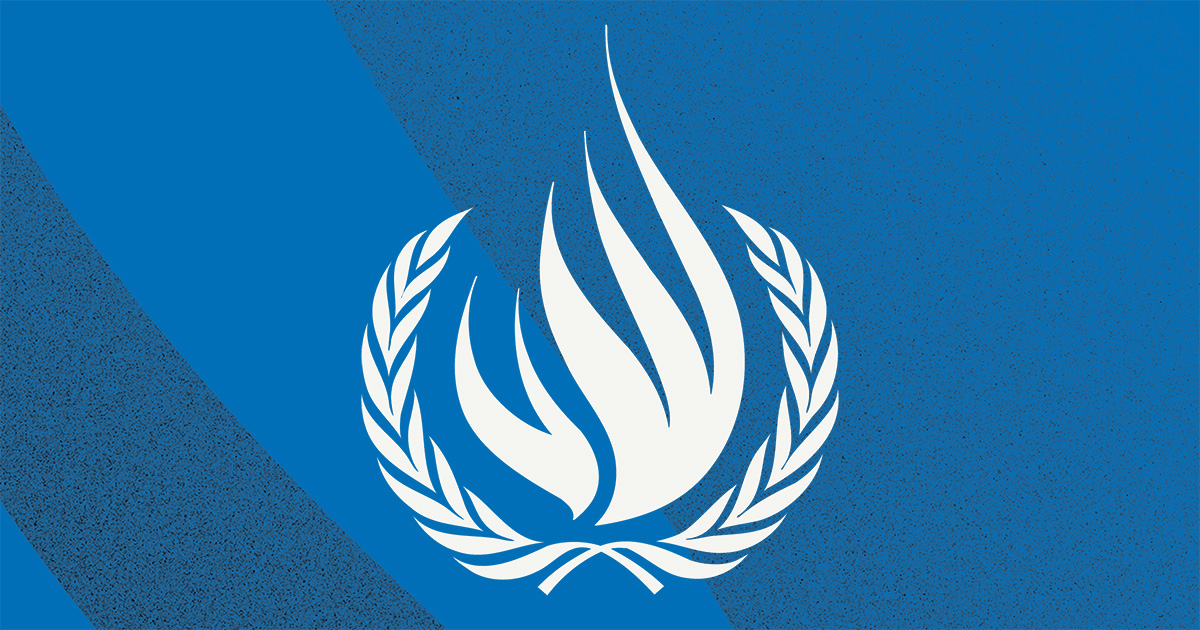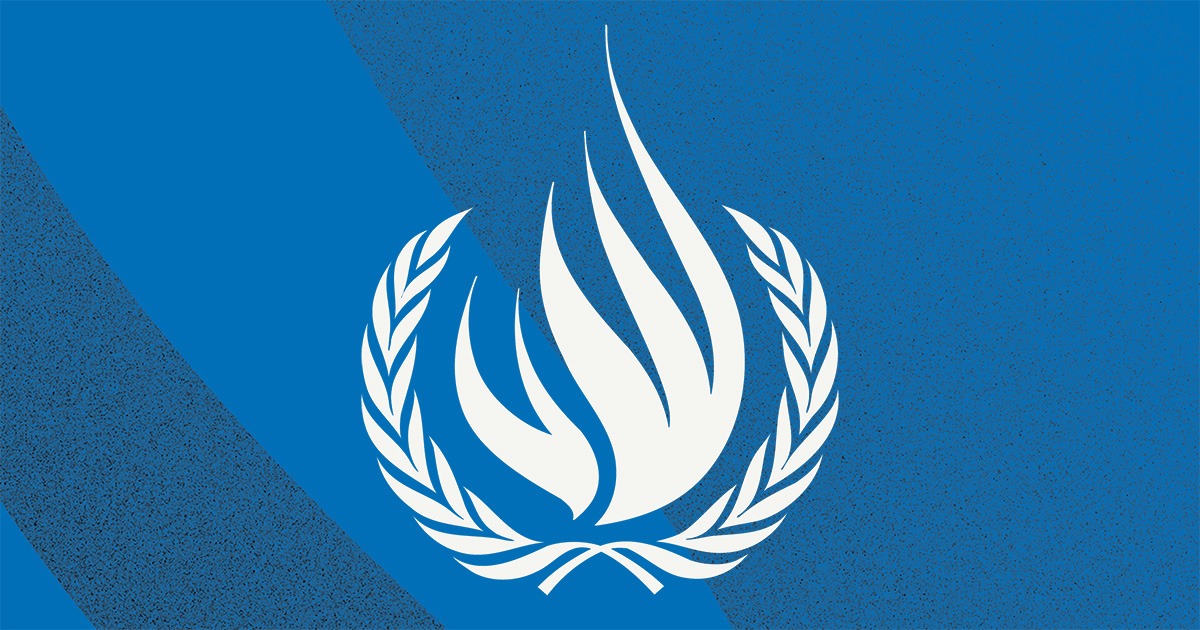
GENEVA – Thailand’s continuous use of lèse-majesté laws to detain and imprison activists and human rights defenders is gravely concerning, a group of UN experts* said today, urging authorities to repeal or significantly revise the country’s criminal code in line with human rights standards.
“Under international law individuals have the right to criticise public officials, including a King, and to advocate peacefully for the reform of any public institution, including the monarchy,” the experts said.
“The Thai lèse-majesté law is both harsh and vague, giving wide discretion to the authorities and the courts to define the offence broadly and has led to the detention, prosecution and punishment of over 270 persons since 2020, many of whom have been given long consecutive sentences by the courts,” the experts said.
Article 112 of Thailand’s Criminal Code makes criticism of the monarchy punishable by up to 15 years in prison. The provision has been repeatedly denounced by United Nations human rights bodies and mechanisms as being inconsistent with international human rights law.
“We have consistently found the detention of individuals under Thailand’s section 112 of the Criminal Code to be arbitrary when it resulted from the exercise of the freedom of expression,” the experts said.
In December 2024, a Thai Criminal Court found human rights lawyer Arnon Nampa guilty under Sections 112 and 116 (sedition) of the Criminal Code for delivering a speech advocating for reform of the monarchy at a protest in August 2020. The Court found Nampa had accused the King with the aim of “causing disorder in society and attaining political changes” and sentenced him to over two years in prison.
This was Nampa’s sixth lèse-majesté conviction. His cumulative prison sentences now stand at over 18 years. He still faces a further eight other lèse-majesté charges over which the courts are due to issue verdicts.
The Working Group on Arbitrary Detention has previously issued an opinion determining that the detention of Arnon Nampa was arbitrary and in breach of international law.
Several UN Human Rights experts have also continuously raised concerns regarding the criminal prosecution of Arnon Nampa and others in Thailand.
“Lèse-majesté laws have no place in a democratic country,” the experts said.
“The widespread use of law to punish human rights defenders, members of the political opposition, social activists, journalists and ordinary citizens who are merely expressing their views peacefully creates a chilling effect, silencing legitimate political expression,” the experts said.
“The Thai Government must bring the criminal code in line with international laws to meet its own human rights obligations,” they said.
The experts also called for an immediate moratorium on prosecutions and imprisonments in Thailand under lèse-majesté laws.
*The experts: Mr. Matthew Gillett (Chairperson), Ms. Priya Gopalan (Vice Chair on Follow-up), Ms. Miriam Estrada Castillo and Mr. Mumba Malila, Working Group on Arbitrary Detention; Ms. Mary Lawlor, Special Rapporteur on the situation of human rights defenders; Ms. Gina Romero, Special Rapporteur on the Rights to Freedom of Peaceful Assembly and of Association; Ms. Margaret Satterthwaite, Special Rapporteur on the independence of judges and lawyers, and Ms. Irene Khan, Special Rapporteur on the promotion and protection of the right to freedom of opinion and expression.
Special Rapporteurs/Independent Experts/Working Groups are independent human rights experts appointed by the United Nations Human Rights Council. Together, these experts are referred to as the Special Procedures of the Human Rights Council. Special Procedures experts work on a voluntary basis; they are not UN staff and do not receive a salary for their work. While the UN Human Rights office acts as the secretariat for Special Procedures, the experts serve in their individual capacity and are independent from any government or organization, including OHCHR and the UN. Any views or opinions presented are solely those of the author and do not necessarily represent those of the UN or OHCHR.
Country-specific observations and recommendations by the UN human rights mechanisms, including the special procedures, the treaty bodies and the Universal Periodic Review, can be found on the Universal Human Rights Index https://uhri.ohchr.org/en/
For more information and media requests please contact: hrc-wg-ad@un.org
For media enquiries regarding other UN independent experts, please contact: Maya Derouaz (maya.derouaz@un.org) or Dharisha Indraguptha (dharisha.indraguptha@un.org)
Follow news related to the UN"s independent human rights experts on Twitter @UN_SPExperts









